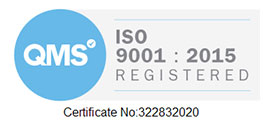Power System Analysis is the core offering at Aurora Power. We specialize in carrying out power systems studies and analysis for Renewable Power generators looking to achieve Grid Code compliance, and for electrical network from small MV systems up to large transmission systems. Studies can be carried out as RMS balanced / unbalanced studies or as full Electromagnetic Transients (EMT), depending on the assessment type.
Aurora are highly experienced in power system studies, and have undertaken a wide range complex studies for many large clients and on many complex plants. At Aurora we use a number of industry leading software packages including DIgSILENT and ETAP for main power system studies, and PSCAD, EMTP-ATP, EMTP-RV for more detailed electromagnetic studies.
Power System Analysis is an essential part of any electrical design process, as it validates that the design is safe and will work as expected. This is an important step in ensuring that all equipment is correctly specified and designed, and so helps avoid expensive remedial work at a later date. Power system studies are also an essential step in achieving compliance with UK, European and international regulations.
Some of the more common study types are explained in more detail below.
Within the UK, the new ENA G99 standard (derived from the European Requirements for Generators -RfG), stipulates a range of power system studies that must be carried out prior to the connection of generators to the UK electrical system. The level of studies required, depend on the generator rating, and connection voltage. At present there are four main categories:
– Type A Generators (<1MW) do not require any special analysis;
– Type B Generators (>1MW and <10MW) which require a Fault Ride Through (FRT) study, Limited Frequency Sensitive – Over (LFSM-O) study, and a basic reactive power flow study.
– Type C Generators (>10MW and <50MW), that require a full spread of studies including Reactive Power Flow, Reactive Power Stability, FRT, LFSM-O, LFSM-U and FSM-O.
– Type D Generators (>50MW and/or connected at 110kV and above), are more or less identical to Type C generators.
Aurora are experienced in these complex studies, and can accurately simulate the dynamic response of the system to upstream faults. Studies are carried out using DIgSILENT Powerfactory.
Correct protection settings of relays are of vital importance to any electrical system, as it ensure that should a fault occur, only the faulted item of equipment is removed form service, and the healthy equipment is kept on line. If the protection study has not been coordinated correctly and there is insufficient grading margin, a simple LV fault can trip a whole HV substation. Aurora has experience of undertaking a wide range of protection grading studies from simple over current earth fault coordination studies for a Ring Main Unit, up to configuring complex differential protection schemes and investigating nuisance protection trips.
We specialise in undertaking difficult studies, and using the ETAP or DIgSILENT software package we can simulate faults on any part of the network and confirm the exact operating sequence and times for the protective devices. Aurora can also help specify and set-up differential protection schemes for transformers, switchgear, cables etc. where appropriate. We also have AMTECH Protect HV for carrying out simple studies, when this approach is requested by a Client.
As more and more power systems contain harmonic polluting sources, such as inverters and variable speed drives, the need for harmonic analysis has been dramatically increasing. Aurora has experience of a wide range of harmonic analysis techniques and are familiar with ENA G5.5, IEC 61000-3 and IEEE-519. As part of Aurora studies approach, we will examine the individual levels of harmonic distortion and the Total Harmonic Distortion (THD) on the system and key busbars, as well as identify any resonance points in the system using frequency dependent profiles or harmonic impedance loci.
Where necessary Aurora can suggest suitable modifications to the power system design, or specify suitable mitigation measures such as harmonic filters and power factor correction equipment. Studies can be carried out using either DIgSILENT or ETAP as required.
Voltage disturbance studies cover a wide range of phenomena including, transformer energisation, battery storage power swings and ramps, motor starting, site trips and voltage flicker. Where necessary these studies can be used to accurately size any pre-insertion resistors (PIRs) to reduce the magnitude of the volt dip for transformer energisation or specification of Soft Starters or a VSD for motors.
Aurora can undertake these power system analysis studies by creating a detailed electromagnetic model using either DIgSILENT or ETAP, and for more complex cases studies can be carried out in PSCAD or EMTP-ATP .
Loadflow studies are steady state analysis calculations, that are used to validate how the system performs during normal, outages and standby conditions. As part of the loadflow analysis the system is analyzed for active (MW) and reactive (MVAr) power flows, in order to identify the need for any shunt MVAr compensation equipment or power factor correction.
Studies are used to identify equipment loadings, the network voltage profile, transformer tap changer requirements, system losses, generator ratings and loadings, and for more complex DNO network outage and contingency cases are analysed in detail. Studies can be carried out in either DIgSILENT or ETAP.
Aurora has experience of a wide range of short circuit study approaches, and are familiar with IEC 60909 or ENA G74 and the Generator Circuit Breaker standard IEC 62271-37-13. As part of any short circuit study we will determine the fault levels and ensure that the selected equipment can safely interrupt any short circuit that may occur on the system.
Aurora also has a detailed knowledge of more complex short circuit scenarios and the issues relating to asymmetrical duty of circuit breakers due to high X/R ratios. Using either the DIgSILENT or ETAP package we can also calculate the asymmetrical, peak and DC component experienced by circuit breakers and identify increased fault duty any delayed current zeros.
Arc flash studies are becoming increasingly important, as they can help ensure that operational personnel are adequately protected, and provided with suitable PPE, for any switching duties. These studies are typically carried out to IEEE 1584 and look at the typical busbar clearances, working distance, fault levels and protection operating time to identify the total incident energy in Cal/cm2, to ensure it is within safe operating limits, and what level of PPE is required. Studies can be carried out using either ETAP or DIgSILENT as required.
Transient and Dynamic stability studies are most frequently associated with island power systems and embedded generators, and are used to measure voltage stability, frequency stability in relation to faults, loss of main supplies, generation and load acceptance and rejection. These studies are useful for identifying any the need for load shedding systems, fast differential protection schemes or other form of power system compensation. Studies can be carried out using either ETAP or DIgSILENT as required.
Electromagnetic Transient (EMT) studies are becoming increasingly important in modern power systems, due to the increasing presence of inverter based generation and shortfalls in accuracy of traditional RMS simulation methods.
EMT studies are typically carried out either in DIgSILENT or PSCAD and can cover a wide variety of events such as circuit breaker Transient Recovery Voltage (TRV) calculation, insulation coordination studies considering lightning impulses, switching over-voltages and temporary over-voltages, sub-synchronous resonance (SSR) and detailed operation of inverter based generation Phase Locked Loop (PLL) and Fault Ride Through (FRT) capability.

Aurora Power Consulting are a leading independent power systems consultancy. We provide specialist power systems analysis services using software such as DIgSILENT, ETAP, PSCAD, EMTP-ATP, CDEGS and XGSLab.

